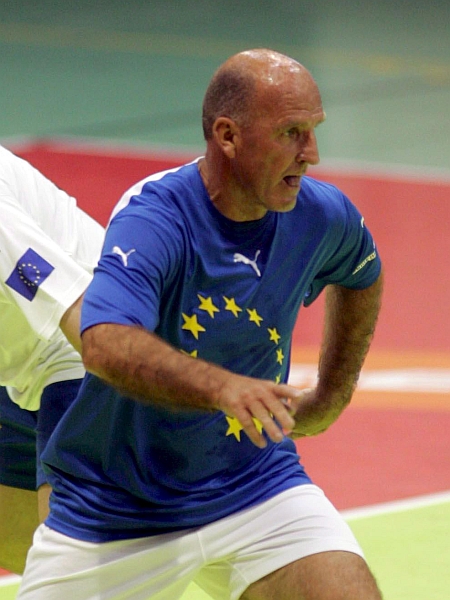
Even though soccer is the most popular sport in most of Europe, it wasn’t always Slovenia’s favorite pastime. In fact, people from the rest of the former Yugoslavia frequently mocked Slovenians for their supposed lack of soccer playing skills. But that all changed when a man named Branko Oblak rose to national - and then international - prominence in the 1960s.
Born in 1947, Oblak joined Ljubljana’s best soccer team, Olimpija, when he was 18. He scored two goals in the very first game he played for Olimpija, against Partizan of Belgrade. Over the years, he emerged as one of the top scorers in Yugoslavia and helped to establish Olimpija as a respectable team that could go head-to-head with the very best. He became particularly well-known for his speed and precision.
In 1970, Oblak was invited to join the Yugoslav national team. The following year, he played against Pelé in the Brazilian legend’s farewell game (Brazil and Yugoslavia drew 2:2), and afterward, he exchanged his kit with Pele. In 1974, Oblak became the first Slovenian-born player to compete in the World Cup.
After a successful two-year stint playing for Hajduk of Split, Croatia, Oblak joined Schalke 04 in 1975. It was the most expensive acquisition of a soccer player that season, but the money was worth it: Oblak’s skills helped to take Schalke to second place in the league. But an even bigger achievement lay in store: In 1980, he joined Bayern, and was among the players who made the team the national champions.
In the mid-1980s, Oblak’s career was in a downturn, but he remained passionately committed to the game, and played for several minor Austrian clubs as he was nearing his forties. Even though he retired from playing in 1987, he remained active in soccer as a coach. After successful stints at various Slovenian teams, he took over Slovenia’s national team in 2004 and headed it until 2006.
In 2003, the Slovenian Football association named Oblak Slovenia’s best soccer player of all time. However, he was more than just that: He had helped to turn Slovenian soccer into a national passion.

































































